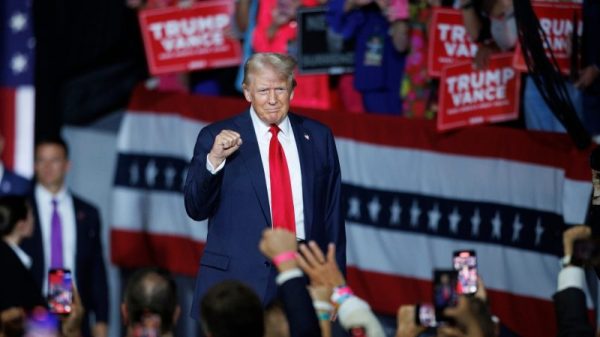Microsoft Urges 700+ China Employees to Move Due to Sino-US Tensions
On the 16th of May, 2024, Microsoft requested some of its China-based employees to consider relocating outside the country. This request comes amid escalating Sino-US tensions, specifically in the realm of advanced technology and artificial intelligence (AI). The geopolitical strain, fuelled by the United States’ efforts to limit China’s access to advanced semiconductor technology, has placed considerable pressure on American companies operating within China. This article delves into the details of this significant development, the historical context of Sino-US tensions, and the broader implications for global trade and technology industries.
May 2024: Rising Tensions Prompt Microsoft Relocation Request
Microsoft (MSFT.O) has asked 700-800 of its staff, primarily those involved in machine learning and cloud computing-related work, to explore opportunities to transfer to locations such as the United States, Ireland, Australia, and New Zealand. This optional relocation offer, extended earlier in the week of the 12th of May, targets mostly employees of Chinese nationality. The company, through a spokesperson, explained that offering internal transfer opportunities is a routine part of managing its global business operations.
Sino-US Relations Strain Behind Microsoft’s Relocation Move
The primary driver behind this significant move is the strained Sino-US relations, which have intensified as both nations vie for supremacy in cutting-edge technology. Washington’s recent measures to limit Beijing’s access to advanced AI chips underscore this competitive tension. These chips are crucial for developing military applications, and the US fears that China’s strengthening in this area could pose a significant security threat. Consequently, American companies like Microsoft find themselves in a challenging position, balancing their extensive operations in China with compliance to US regulations.
Historical Echoes: Modern Tech Tensions Reflect Cold War
The current tensions echo the dynamics of the Cold War, albeit in a modern context focused on technological dominance rather than nuclear arsenals. The Cold War era was marked by a similar atmosphere of suspicion, competition, and strategic manoeuvring between the United States and the Soviet Union. Today, the battleground has shifted to technology, with AI and semiconductor advancements at the forefront.
The United States’ decision to limit China’s access to advanced chips forms part of a broader strategy to curb China’s rapid technological advancements. These chips are integral to developing sophisticated AI applications, which have both civilian and military uses. By restricting exports, the US aims to slow China’s progress and maintain a technological edge. This strategy has significant implications for companies like Microsoft, which rely on a global talent pool and operate extensive research and development (R&D) facilities in China.
Microsoft Reaffirms Long-Term Commitment to China
Despite these challenges, Microsoft has reiterated its commitment to China. The company entered the Chinese market in 1992 and has since established one of its largest R&D centres there. Microsoft’s ongoing presence in China reflects its long-term strategic interests in the region, despite the current geopolitical hurdles.
The relocation offer to Chinese staff highlights the delicate balance Microsoft must strike. On one hand, the company must adhere to US regulations. On the other hand, it aims to maintain its significant presence in China. This move could potentially disrupt its operations, given that the affected employees play crucial roles in machine learning and cloud computing – two areas critical to Microsoft’s future growth.
Broader Impacts on US-China Trade Relations
The relocation request is part of a broader context of deteriorating US-China trade relations. Days before Microsoft’s announcement, President Joe Biden’s administration increased tariffs on various Chinese imports. That includes electric vehicle batteries, computer chips, and medical products. Furthermore, the US Commerce Department is considering new regulations to restrict the export of proprietary AI models.
These measures have had notable effects on the market. For instance, China’s tech giant Baidu reported better-than-expected first-quarter revenue on the same day as Microsoft’s announcement. This indicates that while US companies face operational challenges, Chinese companies continue to thrive, further complicating the economic landscape.
AI and Tech at Heart of US-China Geopolitical Struggle
Artificial intelligence and advanced technology have become central to the power dynamics between the US and China. The development and control of these technologies are seen as critical to national security and economic prosperity. Both nations are investing heavily in AI research and development, recognizing its potential to revolutionise industries, enhance military capabilities, and drive economic growth.
One of the significant concerns driving US restrictions is the potential military applications of AI. Advanced AI technologies can be used to develop autonomous weapons systems, enhance cybersecurity capabilities, and improve intelligence gathering. The US fears that allowing China access to cutting-edge AI chips could bolster its military strength, posing a strategic threat.
Adjusting Strategy: Microsoft Boosts R&D Beyond China
In response to these geopolitical challenges, Microsoft may need to adjust its strategies. Enhancing its R&D efforts outside China, particularly in regions like the US, Europe, and Australia, could mitigate risks associated with its Chinese operations. Additionally, Microsoft might increase its investment in local talent and infrastructure to ensure continuity in its technological advancements.
Microsoft’s commitment to diversifying its operations globally is evident in its substantial presence in multiple international markets. By investing in R&D centres and fostering talent in alternative markets, the company can reduce its dependency on any single region, thereby insulating itself from geopolitical risks.
Long-Term Impact of US-China Tensions on Tech Industry
The ongoing Sino-US tensions and the associated regulatory measures are likely to have long-term implications for the global technology industry. Companies operating internationally must navigate an increasingly complex regulatory landscape, balancing compliance with strategic growth. The emphasis on technological self-sufficiency may drive countries to invest more in local R&D, fostering innovation within their borders.
As countries strive for technological independence, we may see a shift in innovation hubs. Regions that invest heavily in AI and semiconductor research could emerge as new leaders in technology, challenging the dominance of traditional tech giants. This shift could lead to a more diversified and competitive global technology landscape.
US-China Tech Relations Likely to Remain Strained
Given the current trajectory, it is likely that US-China relations will remain strained, particularly in the technology sector. The US will continue to implement measures to limit China’s technological capabilities, while China will strive to overcome these barriers and achieve self-sufficiency in key technological areas.
For Microsoft, navigating this complex environment will require strategic flexibility. The company may need to bolster its operations in other regions to mitigate the risks associated with its China-based activities. Additionally, Microsoft could increase its investment in local talent in countries like the US, Ireland, Australia, and New Zealand to compensate for any potential disruptions in its Chinese workforce.
Microsoft’s Future Amidst Geopolitical Tech Tensions
Microsoft’s recent request for some of its China-based staff to consider relocating is a significant development against the backdrop of escalating Sino-US tensions. As both nations continue to vie for technological dominance, companies operating in this space must adapt to an increasingly complex and competitive landscape. Microsoft’s commitment to China, despite the current challenges, reflects its strategic interests in maintaining a strong global presence. However, the evolving geopolitical climate will necessitate ongoing adjustments to its operational strategies.
In the long run, the interplay between technological advancements and geopolitical manoeuvring will shape the future of international business operations. Companies like Microsoft will play a crucial role in navigating this dynamic environment, balancing regulatory compliance with strategic growth initiatives. The global technology industry stands at a crossroads, with innovation, competition, and cooperation defining the path forward.
The post Microsoft Urges 700+ China Employees to Move Due to Tensions appeared first on FinanceBrokerage.


































